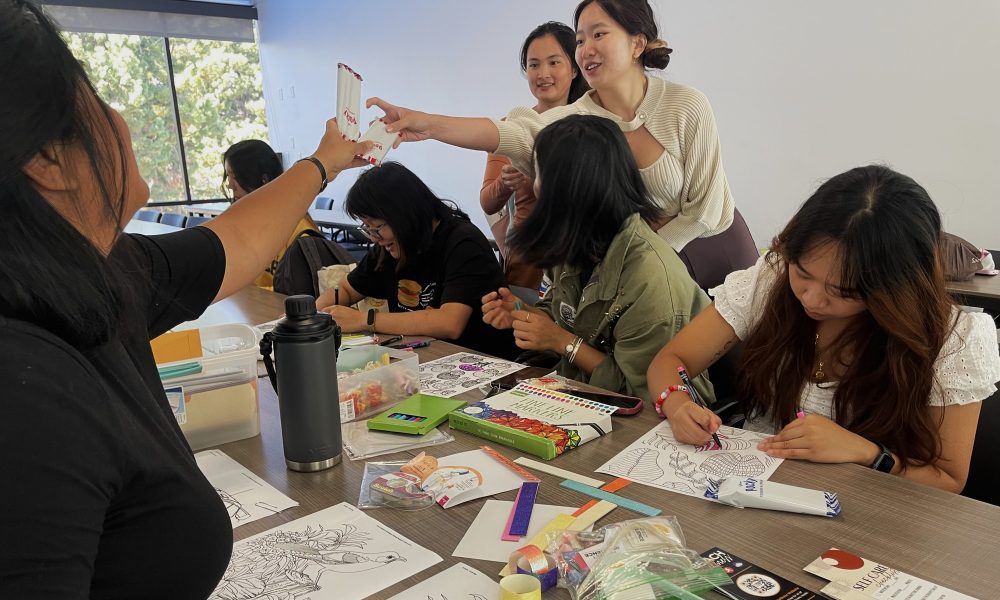By: Cheyenne Elizarraras and Buddy Casiles
With the influx of of Asian American hate that occurred amidst the COVID-19 pandemic, Counseling and Psychological Services’ staff and psychologists decided to create a place where students could step away from stress.
Spearheaded by CAPS psychologist Diane Hayashino and licensed CAPS therapist Arlene Dayrit, Sticky Rice has become a safe place for students to destress. Every week, the facilitators rotate between Dr. Alyssa Hufana, Dr. Ferdinand Arcinue and Dr. Lesley Graves.
Open to all students, with a focus on Asian American and Pacific Islander students, the program allows participants to meet and connect through various activities. These activities emphasize mindfulness and they are organized by peer mentors.
“Out of response to AAPI hate crimes happening in March of 2021, we just mobilized and put together a team and our AAPI faculty to support in the effort,” Dayrit said. “Then, fall later that year, is when it became a formalized space.”
The weekly program meets every Tuesday from 12 p.m. to 1 p.m. at the University Student Union in room 303.
“CAPS has always had general drop-in spaces, and sometimes affinity spaces, like SisterFriends or Rainbow Cafe, Latinas at the Beach and given the COVID assumptions, we started feeling like our AAPI students needed a space,” Hayashino said.
The meetings offer snacks, coloring, breathing exercises, origami, discussions of resources and other activities based on current struggles amongst students.
For example, this week’s focus was mindfulness since school is in full swing and students need some time where they can “slow down to speed up.” The meeting on Sept. 19 involved a chat about ways students can take care of themselves to get through the semester, as well as snacks and coloring.
Sticky Rice tries to create an inviting space as students are free to arrive, and to leave, whenever they please. Destigmatizing mental health to allow for open discussion was another important quality needed for these meetings.
Sticky Rice was originally named Creating Connections, however the name change, marketing and location of the meetings have allowed for a better turnout this semester.
“Rice cuts across all groups, but for a lot of Asians, they get ‘Sticky Rice’ and they’re interested,” Hayashino said.
As CAPS recognizes that asking for help can be difficult, they urge people to reach out in any way that is comfortable for them. There are so many different ways to ask others for help.
“Not every student is going to walk in through the doors of CAPS for help, so that’s what these spaces are for. We’re not doing therapy in this space, we’re providing a support space,” Hayashino said.
For more information about Sticky Rice, contact Arlene Dayrit at [email protected].
This article was edited on Oct. 5 for quality and clarity purposes.




